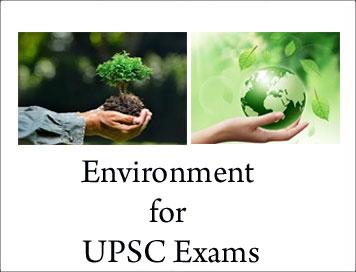Kigali Agreement : Environment for UPSC Exams
Kigali Agreement : Environment for UPSC Exams
-
197 countries party to the Montreal protocol struck a new landmark deal at Kigali in Rwanda to reduce the emissions of greenhouse gases, hydro fluorocarbons (HFCs).
-
The elimination of HFCs could reduce global warming by 0.5 degrees by 2100, according to a 2015 study by the Institute for Governance and Sustainable Development.
-
The Kigali Amendment to the Montreal Protocol is legally binding and will come into force from January 1, 2019.
-
Under the agreement, developed countries must reduce their use of HFCs by 10 percent by 2019 from 2011-2013 levels, and then by 85 percent by 2036.
-
A second group of developing countries, including China and African nations, are committed to launching the transition in 2024. A reduction of 10 percent compared with 2020-2022 levels should be achieved by 2029, to be extended to 80 percent by 2045.
-
A third group of developing countries, which include India, Pakistan, Iran, Iraq and Arab Gulf states, must begin the process in 2028 and reduce emissions by 10 percent by 2032 from 2024-2026 levels, and then by 85 percent by 2047.
-
India has joined the nations of the world in lauding the Hydroflurocarbon (HFC) Amendment to the Montreal Protocol, agreed to at the 28th Meeting of Parties at Kigali, Rwanda.
-
The Agreement upholds the principle of Common but Differentiated Responsibilities and Respective Capabilities (CBDR & RC).
-
HFCs were introduced in the 1990s to replace chemicals that had been found to erode the ozone layer, but turned out to be catastrophic for global warming.
-
According to the Berkeley National Laboratory, air conditioning is the cause of the largest growth in HFCs - and the world is likely to have another 700 million air conditioners by 2030.
-
HFCs - though they are greenhouse gases like carbon dioxide, methane and nitrous oxide - are not dealt with under the Paris Agreement but under the Montreal Protocol.
-
Montreal Protocol, which came into force in 1989, is aimed at reducing the production and consumption of ozone depleting substances in order to protect the earth’s fragile ozone layer.

